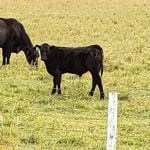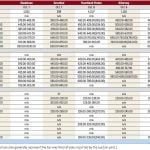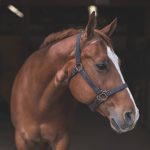A southern Ontario feed processor wants customers to stop feeding its nursery feeds to young hogs, over concerns that feeds made with hog-based ingredients can be a “potential vector” for the porcine epidemic diarrhea virus (PEDv).
PEDv, a contagious disease leading to death rates of up to 100 per cent in young piglets and is estimated to have killed between one million and four million piglets since arriving in the U.S. last year, has turned up on a handful of hog farms in southwestern Ontario since late last month.
Read Also

Ample supplies and improved livestock sector to boost Canadian feed sector: FCC
Abundant feed grain supplies and improved profitability for the livestock sector should support strong feed demand and sales through the winter, says a new report from Farm Credit Canada.
As of Sunday, the virus has been confirmed on 11 hog farms, most recently on a farrow-to-finish operations in the Elgin area and on another farrow-to-finish site further east, in the Niagara region.
Grand Valley Fortifiers’ decision, announced Sunday, follows a recommendation posted the same day by Kansas State University swine specialist Dr. Steve Dritz on KSU’s website, urging hog farmers to “be knowledgeable of feed ingredients that are in their swine rations.”
The “magnitude of risk” of swine feed as a vector for PEDv transmission is “currently unknown,” KSU emphasized.
However, KSU’s veterinary college suggested producers consider nursery diet options for hogs ranging from “removal of all porcine-origin feed ingredients” to removal of “specific protein-based ingredients from nursery diets.”
With that in mind, Cambridge, Ont.-based GVF on Sunday asked its customers to stop feeding its Bionic, BioForce and BioPrime brand nursery feeds (phases 1 to 4), sold from the date Jan. 1, 2014 forward.
Those products, GVF said, contain “porcine-origin blood plasma, which, although sourced from an industry leading North American supplier, may be a risk factor in the transmission of PED virus.”
GVF said it is now recalling all remaining inventory of the feed products in question and will credit farmers’ accounts accordingly.
The company said its own premix manufacturing facility has “for many years” been free of porcine-origin feed ingredients such as blood plasma, meat and bone meal and fats. The unnamed third-party pelleted feed plant that makes GVF’s nursery feeds has also now removed porcine plasma, cleaned its facility and moved to “exclusive production” of nursery feeds with no hog-based feed ingredients.
Swiffer tests
The spread of PEDv is generally “raising concern” about vehicle traffic to and from swine facilities, GVF said, be it through “animal pickup and deliveries, semen, deadstock, commodity (and/or) feed and premix trucks.”
Vehicles used to deliver bulk Bionic, BioForce and BioPrime nursery pellets have “swiffer tested” negative for PEDv as recently as last Thursday, GVF said.
GVF said it has worked with South West Ontario Veterinary Services since Ontario’s, and Canada’s, first case of PEDv was confirmed on Jan. 22. Since then, “with close to 100 environmental swiffer tests now completed, it has been encouraging to have not received a positive swiffer test from any of the companies’ vehicles.”
KSU noted other dietary options for hog operations may include testing porcine products for PEDv and using them only after they’re verified as PEDv-negative; replacing hog-based products in diets with bovine products; and removing all animal proteins, except milk products, from the diet.
Because the implications of PEDv infection are “much greater” on farrowing operations, KSU noted, some producers are opting to not use any porcine products in creep feed or in gilt multiplication feed, while using PEDv-negative porcine products in off‐site nurseries or in wean‐to-finish production. — AGCanada.com Network
















